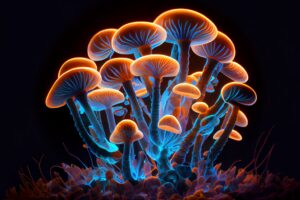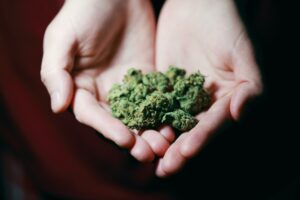Research is shedding light on the power of microdosing cannabis to ease symptoms of depression. This gentle, science-backed approach offers mood support without the high.
In recent years, cannabis has been gaining attention as a potential ally in the management of depression. While traditional cannabis use can sometimes lead to unwanted side effects, like anxiety, fatigue or even amplified depression, microdosing offers a promising alternative. By consuming very small amounts of cannabis, individuals may experience consistent mood-enhancing benefits without the typical high. Recent studies have shed light on how microdosing cannabis can ease depression, providing a nuanced approach to mental health care. Read on to learn more.
What Is Microdosing and How Can It Help?
Microdosing involves taking a tiny amount of a substance—just enough to achieve therapeutic effects without significant psychoactive impact. In the case of cannabis, this typically means ingesting 1–2.5 mg of THC, the primary psychoactive component, at regular intervals. At these low doses, users often report subtle improvements in mood, energy levels and overall well-being, without feeling impaired.
The Cumulative Nature of Microdosing Cannabis
Unlike a full psychoactive dose of THC that has an immediate, noticeable impact, microdosing cannabis tends to have cumulative effects. A single microdose may not produce significant changes, but with consistent, daily use, individuals may experience gradual improvements in depression symptoms. This approach aligns with findings from a 2024 study published in Pharmacopsychiatry, which observed that medical cannabis led to a clinically significant reduction in depression severity for participants over an 18-week period.
Methods of Microdosing Cannabis to Ease Symptoms of Depression
There are various methods you can try for microdosing to ease symptoms of depression, and each comes with its own onset time and duration of effects:
- Tinctures: Administered sublingually, tinctures are absorbed quickly, with effects typically felt within 15–20 minutes.
- Edibles: Ingested orally, edibles take longer to take effect—usually 45 minutes to two hours—but their effects last longer.
- Vaporizers: Inhalation provides rapid onset of effects, but the duration is shorter compared to edibles.
Starting with a low dose and gradually adjusting is key. Keeping a journal to track dosages, methods, and effects can help fine-tune your microdosing regimen.
Considerations for Microdosing Cannabis for Depression
While microdosing cannabis can offer benefits, it’s essential to approach it with caution:
- Start low and go slow: Begin with the lowest effective dose to minimize the risk of adverse effects.
- Monitor effects: Keep track of mood changes, side effects and overall well-being to adjust dosages accordingly.
- Consult healthcare providers: Especially if you’re on other medications or have underlying health conditions, it’s crucial to discuss microdosing with a healthcare professional.
By approaching microdosing thoughtfully and with an informed lens, individuals can explore its potential benefits in managing depression.
Photo credit: MJTH/Shutterstock.com






